BC United (BCU), known from 1903 until 2023 as the British Columbia Liberal Party or BC Liberals, is a provincial political party in British Columbia, Canada. The party has been described as conservative, neoliberal, and occupying a centre-right position on the left–right political spectrum. The party commonly describes itself as a "free enterprise coalition" and draws support from members of both the federal Liberal and Conservative parties. From 1991 to 2024, BC United was the main centre-right opposition to the centre-left New Democratic Party (NDP). Once affiliated with the Liberal Party of Canada, the British Columbia Liberal Party became independent in 1987. The party changed its name to BC United on April 12, 2023.
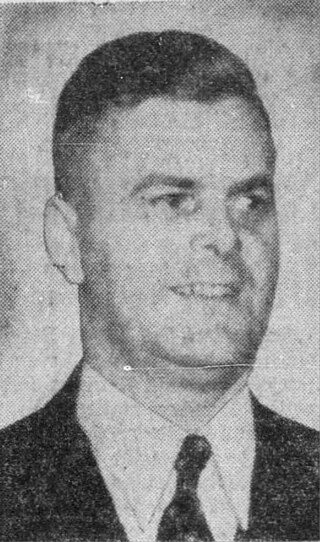
William Andrew Cecil Bennett was a Canadian politician who served as the 25th premier of British Columbia from 1952 to 1972. With just over 20 years in office, Bennett remains the longest-serving premier in British Columbia history. He was a member of the Social Credit Party (Socreds).
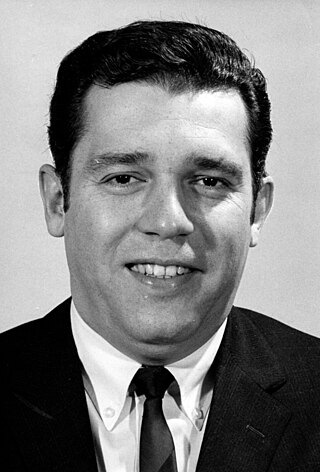
David Barrett was a Canadian politician and social worker in British Columbia. A member of the British Columbia New Democratic Party (BCNDP), he was the 26th premier of British Columbia from 1972 to 1975. He was the first NDP premier in the province.
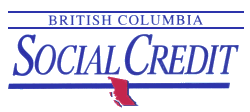
The British Columbia Social Credit Party was a conservative political party in British Columbia, Canada. It was the governing party of British Columbia for all but three years between the 1952 provincial election and the 1991 election. For four decades, the party dominated the British Columbian political scene, with the only break occurring between the 1972 and 1975 elections when the British Columbia New Democratic Party governed. Party members were known as Socreds.
The Canadian social credit movement is a political movement originally based on the Social Credit theory of Major C. H. Douglas. Its supporters were colloquially known as Socreds in English and créditistes in French. It gained popularity and its own political party in the 1930s, as a result of the Great Depression.

Alberta Social Credit was a provincial political party in Alberta, Canada, that was founded on social credit monetary policy put forward by Clifford Hugh Douglas and on conservative Christian social values. The Canadian social credit movement was largely an out-growth of Alberta Social Credit. The Social Credit Party of Canada was strongest in Alberta, before developing a base in Quebec when Réal Caouette agreed to merge his Ralliement créditiste movement into the federal party. The British Columbia Social Credit Party formed the government for many years in neighbouring British Columbia, although this was effectively a coalition of centre-right forces in the province that had no interest in social credit monetary policies.

The Social Credit Party of Canada, colloquially known as the Socreds, was a populist political party in Canada that promoted social credit theories of monetary reform. It was the federal wing of the Canadian social credit movement.

The 1980 Canadian federal election was held on February 18, 1980, to elect members of the House of Commons of Canada of the 32nd Parliament of Canada. It was called when the minority Progressive Conservative government led by Prime Minister Joe Clark was defeated in the Commons.

The 1979 Canadian federal election was held on May 22, 1979, to elect members of the House of Commons of Canada of the 31st Parliament of Canada. It resulted in the defeat of the Liberal Party of Canada after 16 years in power, 11 of them under Prime Minister Pierre Trudeau. Joe Clark led the Progressive Conservative Party to power but with only a minority of seats in the House of Commons. The Liberals, however, beat the Progressive Conservatives in the overall popular vote by more than 400,000 votes. Taking office on the eve of his 40th birthday, Clark became the youngest prime minister in Canadian history.

The 1974 Canadian federal election was held on July 8, 1974, to elect members of the House of Commons of Canada of the 30th Parliament of Canada. The governing Liberal Party was reelected, going from a minority to a majority government, and gave Prime Minister Pierre Trudeau his third term. The Progressive Conservatives, led by Robert Stanfield, did well in the Atlantic provinces, and in the West, but Liberal support in Ontario and Quebec ensured a majority Liberal government.

The 1991 British Columbia general election was the 35th provincial election in the Province of British Columbia, Canada. It was held to elect members of the Legislative Assembly of British Columbia. The election was called on September 19, 1991, and held on October 17, 1991. The incumbent Social Credit Party of British Columbia, which had been beset by scandals during Bill Vander Zalm's only term as premier, was defeated by the New Democratic Party of Mike Harcourt. Liberal Party leader Gordon Wilson surprised observers by leading his party to winning one-third of the votes cast, and forming the official opposition in the legislature after having held no seats at all since 1979. The new legislature met for the first time on March 17, 1992.
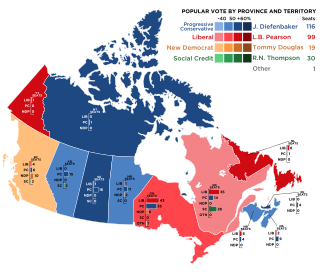
The 1962 Canadian federal election was held on June 18, 1962, to elect members of the House of Commons of Canada of the 25th Parliament of Canada. The governing Progressive Conservative (PC) Party won a plurality of seats in this election, and its majority government was reduced to a minority government.

The 1986 British Columbia general election was the 34th general election in the Province of British Columbia, Canada. It was held to elect members of the Legislative Assembly of British Columbia. The sitting Social Credit government was re-elected.
The 1982 Alberta general election was held on November 2, 1982, to elect members of the Legislative Assembly of Alberta.
The 1983 British Columbia general election was the 33rd provincial election for the province of British Columbia, Canada. It was held to elect members of the Legislative Assembly of British Columbia. The election was called on April 7, 1983. The election was held on May 5, 1983. The new legislature that resulted from this election met for the first time on June 23, 1983.
The 1975 British Columbia general election was the 31st general election in the Province of British Columbia, Canada. It was held to elect members of the Legislative Assembly of British Columbia. The election was called on November 3, 1975, and held on December 11, 1975. The new legislature met for the first time on March 17, 1976.
The 1960 British Columbia general election was the 26th general election in the Province of British Columbia, Canada. It was held to elect members of the Legislative Assembly of British Columbia. The election was called on August 3, 1960, and held on September 12, 1960. The new legislature met for the first time on January 26, 1961.

The 1956 British Columbia general election was the 25th general election in the Province of British Columbia, Canada. It was held to elect members of the Legislative Assembly of British Columbia. The election was called on August 13, 1956, and held on September 19, 1956. The new legislature met for the first time on February 7, 1957.
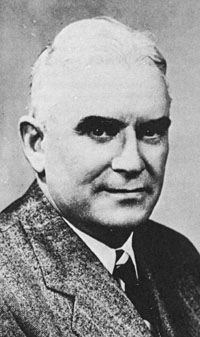
The 1952 British Columbia general election was the 23rd general election in the Canadian province of British Columbia. It was held to elect members of the Legislative Assembly of British Columbia, alongside a plebiscite on daylight saving time and liquor. The election was called on April 10, 1952, and held on June 12, 1952. The new legislature met for the first time on February 3, 1953.
The Politics of British Columbia involve not only the governance of British Columbia, Canada, and the various political factions that have held or vied for legislative power, but also a number of experiments or attempts at political and electoral reform.














